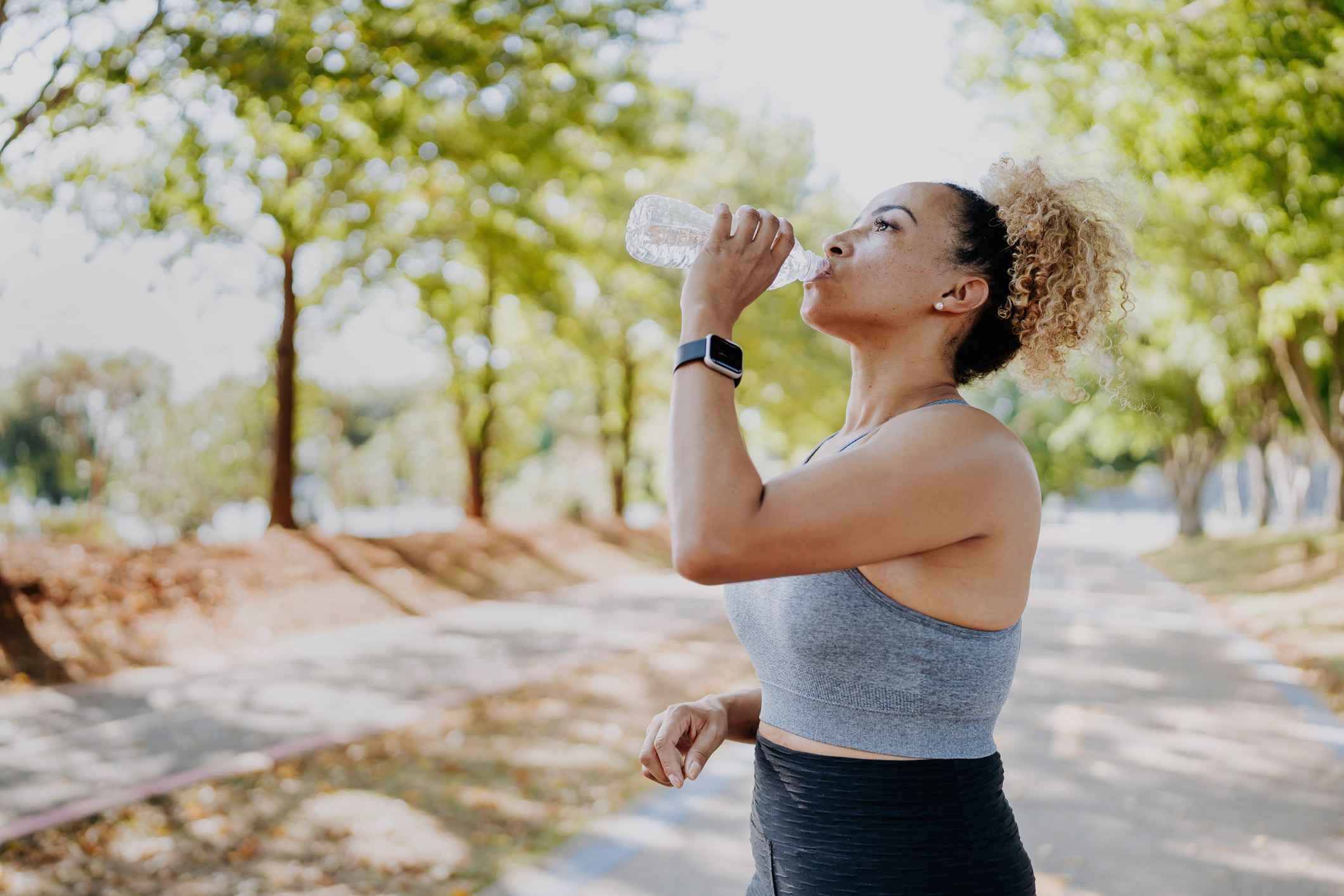
Heat-related illnesses and deaths are mostly preventable, yet extreme heat claims the lives of more than 600 people in the United States each year, according to the Centers for Disease Control and Prevention.
Staying well-hydrated is one of the most effective ways to protect against heat-related conditions. “Dehydration occurs when the body loses more water than it takes in, limiting its ability to function properly,” said Suzanne Cantley, DSN, CRNP, CDES, a primary care provider at UAB Medicine St. Vincent’s Primary Care Trussville.
During the summer months, high temperatures and humidity can lead to sweating, which depletes the body’s stored water and causes dehydration. This can lead to seizures, kidney failure, heat stroke, brain swelling, and even death.
Signs of dehydration
Early signs and symptoms of dehydration may include thirst, dry mouth, dark urine, or muscle cramps. More serious symptoms include dizziness, confusion, fainting, or stroke.
How much water is enough? Cantley says there is no “one-size-fits-all” formula to determine how much water one should drink to stay hydrated. She warns that some medications can cause dehydration, and older adults sometimes have a reduced sense of thirst.
“The U.S. National Academy of Science, Engineering, and Medicine recommends 125 ounces daily for healthy adult men and 92 ounces for healthy adult women,” Cantley said. “For children up to 100 pounds, the Children’s Health Urology Center in Dallas, Texas, recommends half the child’s weight in ounces daily. However, the amount you need depends on age, activity level, environment, and health status.”
Cantley offers these tips to help people stay hydrated:
- Avoid sugary or energy drinks, as caffeine is a diuretic and can cause dehydration.
- Don’t wait until you are thirsty before drinking water. By then, you are already dehydrated.
- Drink until your urine is clear or very light yellow.
- Drink extra water before exercise or when spending time outside in hot weather.
- Drink extra water if you have diarrhea or vomiting.
Hydration in children
Cantley warns that infants and young children are particularly at risk to dehydration, because they cannot express when they are thirsty. Also, due to their smaller body size, children have a faster fluid turnover cycle.
“For infants and toddlers, a dry diaper for more than three hours could be a sign of dehydration,” Cantley said. “Signs for young children might include sunken eyes, dry mouth and lips, no tears when crying, and a decrease in playfulness.”
For more information, schedule an appointment with a UAB St. Vincent’s provider.

